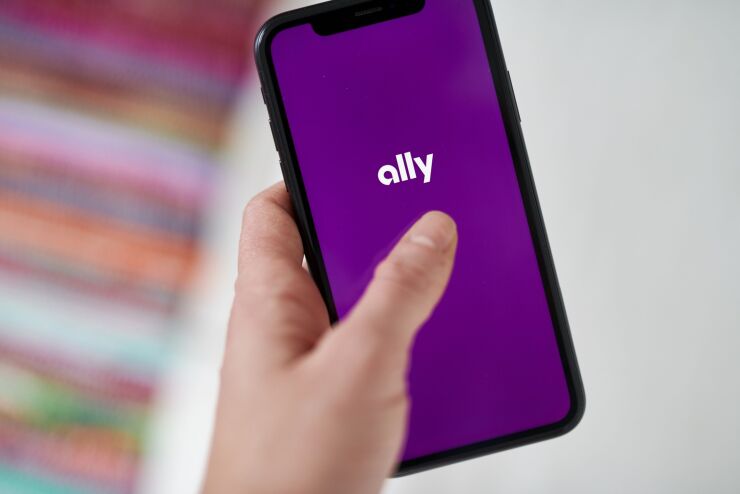Ally Financial, which is already a major advertiser in women’s athletics, has committed to closing the gender gap in its sports ad spending over the next five years.
By next year, the bank plans to spend 40% of its sports advertising budget on women’s sports, a company spokesperson said in an email. Ally plans to reach parity between men’s and women’s sports by 2027.
“We believe that women’s sports provide outsized returns for business, and every dollar invested helps the Ally brand grow alongside it,” the spokesperson said. “Women’s sports fans are willing to engage with authentic brand sponsors and are more likely to listen to messages from brands that support their passions.”

In 2021, Ally became a corporate sponsor of the National Women’s Soccer League as part of a deal that put the company’s logo on the sleeves of jerseys of players on every team. In men’s sports, Ally has been a NASCAR sponsor, as well as a key advertiser for Major League Soccer’s Charlotte Football Club.
When asked how much money Ally currently spends on advertising for women’s and men’s sports, the bank spokesperson said in an email: “I can tell you that we’re not where we want to be.”
Ally’s pledge to reach gender parity in sports ad spending is part of a new company initiative aimed at boosting viewership of women’s competitions. The “Watch the Game, Change the Game” campaign will “support the drive for equity” by sponsoring a new television slot and marketing push featuring top female athletes, according to a statement from Ally.
“More representation in media will help create long-term sustainability for women’s sports and drive fandom, which creates opportunity for brands to deepen engagement with their audiences,” the Ally spokesperson said. “It’s good for business and it’s good for society.”
The five-year pledge is also meant to serve as a “call to action” for other advertisers to spend more money on women’s sports, the bank’s statement said.
The bank's announcement came during a week that marked the 50th anniversary of Title IX, the 1972 law that led to expanded opportunities for female athletes.
Ally, which has $184 billion of assets, is already the third largest women’s sports advertiser, trailing only Nike and Gatorade, according to rankings by the data provider SponsorUnited.
Amid fresh competition from newcomers seeking to build brand recognition, banks that sponsor pro sports teams are leaning into content that tells a story about their connections to local communities.
Mastercard is tied for fourth, alongside the communications giant Verizon, the luxury car brand Porsche and the commercial risk insurance provider Aon.
Ally has “taken this chance to be unique” by seeking to become an early mover in the market for women’s sports advertising, said Bob Lynch, president of SponsorUnited.
“You have to be able to stand out and tell stories that others aren’t telling,” Lynch said. “Ally will certainly benefit from identifying a vast space with limited competition while also saying they support equality.”






